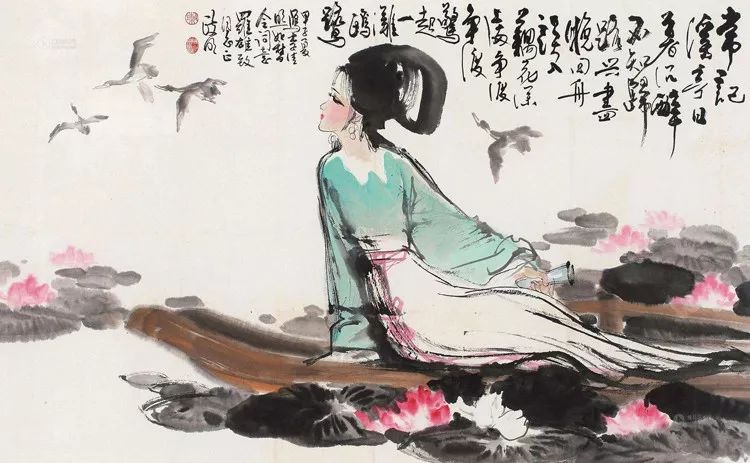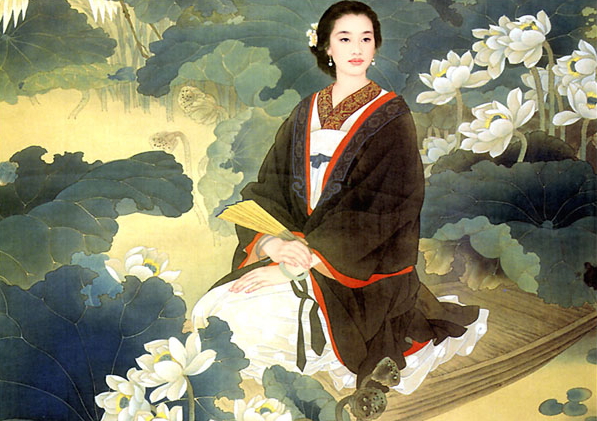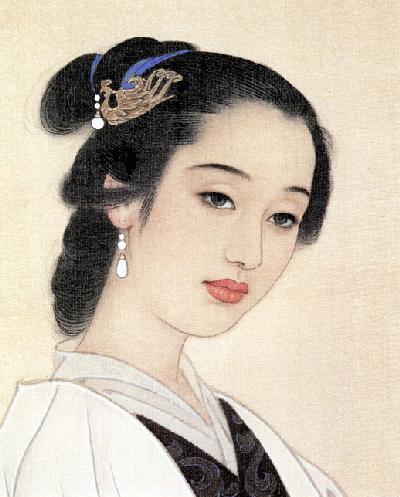Many people know 李白 Lǐ bái and 杜甫 Dù fǔ from the Tang Dynasty (618-908 CE) as the greatest poets in Chinese history. But these men are just the tip of the iceberg when it comes to famous poets. If you ask anyone studying Chinese history “Who is the greatest female poet?”, no doubt 99% of them will say the name Li Qing Zhao.
Li Qing Zhao (1084-1151 CE) was born into a wealthy literati family and received an excellent childhood education. In a feudalistic society, women were expected to stay in the house, avoid conversations about politics, and speak only when spoken to.
Li did not do any of what was deemed the norm for women at the time. She was an anomaly and notably rebellious from the start.
The social constructs during the Song Dynasty did not stop her from writing poetry. Her writing became well-known throughout the literary circle as early as her teenage years.
Li’s Legendary Life
Li lived a legendary life filled with drama. She had two marriages. Her first marriage was with a scholar named Zhao Ming Cheng, whom she loved dearly.
They both had the same interests in art, poetry and calligraphy, as well as in curating some of the rarest books during that time.
Sadly, Zhao passed away during one of his trips to his official post. His death was a detrimental hit for Li and she never recovered from the grief of losing him. Many of her poems written later on in her life were about her longings and love for him.
She later remarried to a man named Zhang Ruzhou. This second marriage was a failed union.
Zhang was an abusive husband. He only wanted to marry Li for her curated collection of books. Within a couple of months Li Qingzhao divorced him, which caused controversy and criticism.
Li’s Remaining Poetry
Li wrote countless poems. However, many were lost or destroyed throughout the years. Here is one of her most well-known poems:
Chinese:
如梦令 · 昨夜雨疏风骤 Rú mèng lìng: Zuó yè yǔ shū fēng zhòu
昨夜雨疏风骤, Zuó yè yǔ shū fēng zhòu,
浓睡不消残酒 。nóng shuì bù xiāo cán jiǔ。
试问卷帘人, Shì wèn juàn lián rén,
却道海棠依旧。 què dào hǎi táng yījiù。
知否,知否? 应是绿肥红瘦。 Zhī fǒu, zhī fǒu? Yīng shì lǜ féi hóng shòu。
English:
Last night the rain drizzled, and rough winds blew,
I remain deep in sleep, still lingering with the residual effects of wine.
I ask the maid, who is rolling up the curtains.
She replies, saying those crab apple trees are still blossoming.
Yet, doesn’t she know? Doesn’t she know?
It should be the season of thinning reds and richening greens.
This poem is so famous. One Chinese historical drama is even titled after its last verse.
 Li Qing Zhao on a boat in the middle of a lotus pond.
Li Qing Zhao on a boat in the middle of a lotus pond.
Li’s Legacy
Today, Li is regarded as 千古第一才女 qiān gǔ dì yī cái nǚ, or “the most talented woman in history.” Her poems are not only used as teaching materials in school, but are referenced in people’s everyday lives. Though many of her poems have an enticing simplicity, they are three-dimensional.
Li is a role model for all women. Besides her remarkable literary talent, her bravery and courage to go against the norm inspired countless people.
She was truly an extraordinary woman! Li’s place in history is alongside many other influential female warriors, empresses and concubines, even female pirates. These incredible women of the past all played important roles in shaping Chinese culture and history to what we know today.
[zombify_post]



0 Comments